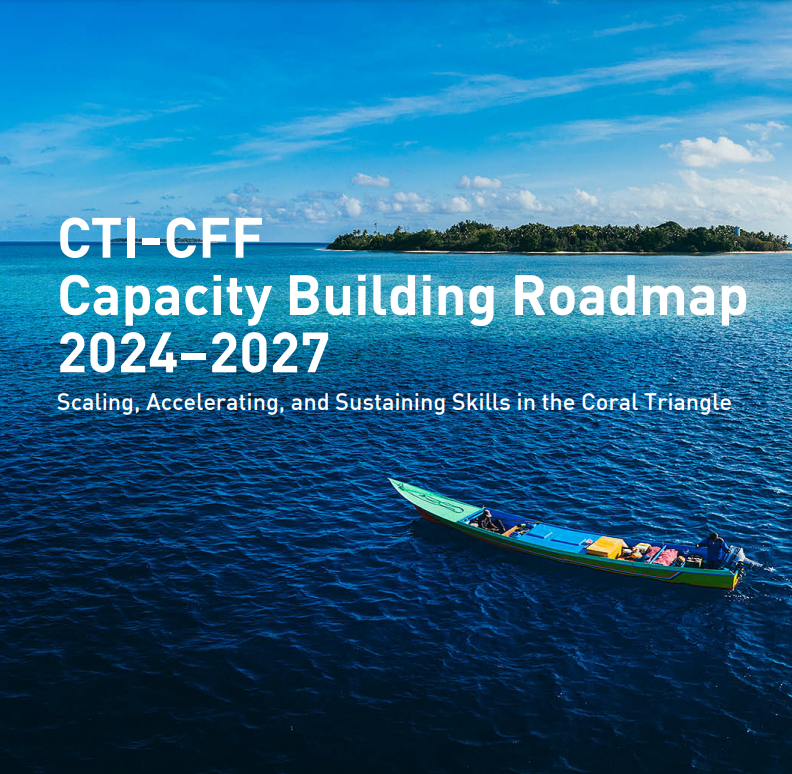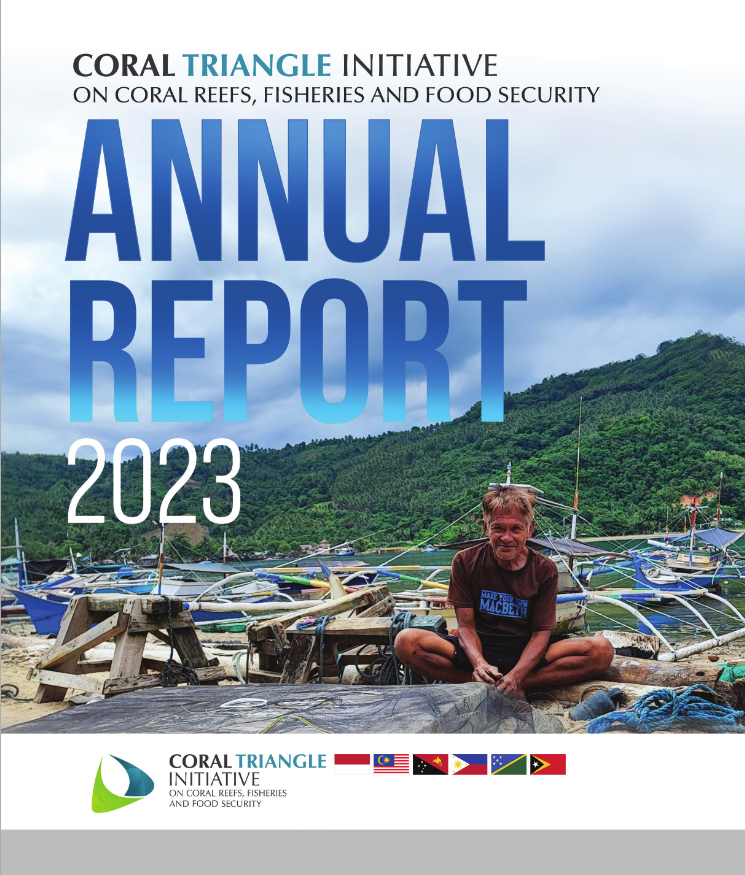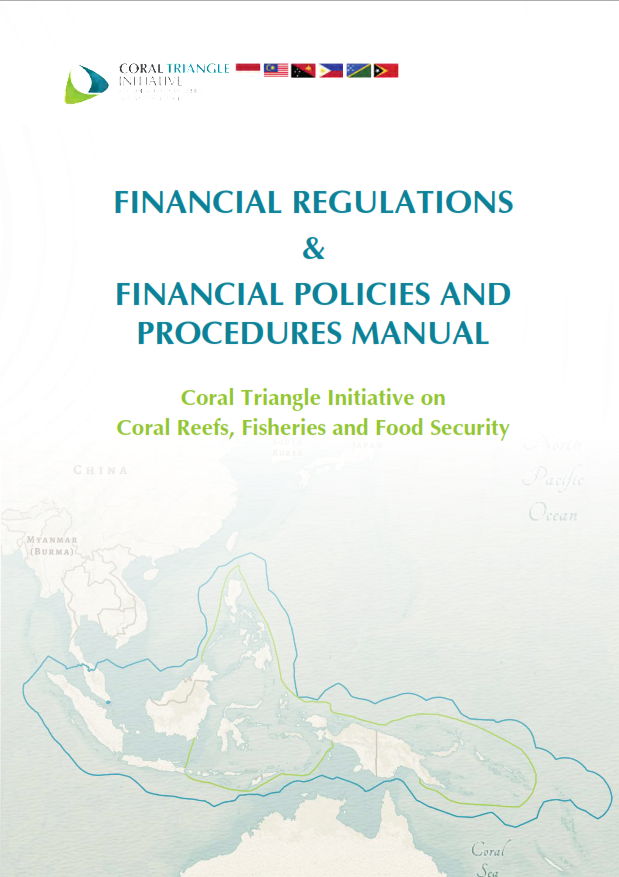CTI-CFF CCA Working Group pushes on raising awareness on climate action for coastal and marine ecosystems conservation and adaptation
Jakarta, Indonesia, 3 July 2019– CTI-CFF’s Climate Change Adaptation Working Group (CCAWG) pushes on raising awareness on climate action for coastal and marine ecosystem conservation and adaptation on its three-day workshop in Jakarta, Indonesia.
“Blue Carbon, as a measure on Climate Change Adaptation and Climate Change Mitigation as co-benefit, is still considered as a new jargon, although not a new practice to us…The CT6 in its entirety, has knowledge about the blue carbon, however further capacity building is necessary in order for us to fully understand its dynamics for us to come up with a better, practical and implementable plan of action,” CTI-CFF CCAWG Chair and Undersecretary of Philippines’ Climate Change Commission (CCC) Noel Gaerlan said in a message delivered by Ms. Mary Angelie Sto. Domingo, Executive Assistant of CCC.
“Since this Blue Carbon is too technical for our coastal communities and local government to understand, we also need to laymanize this to make it useful for them. As a result, we can make the public aware on this matter and we can encourage our stakeholders to support and take concrete actions in protecting our blue carbon ecosystems,” Gaerlan said.
Blue carbon is the carbon stored in coastal and marine ecosystems. Coastal and marine ecosystems are sequestering and storing “blue” carbon from the atmosphere and oceans and thus, are an essential piece of the solution to global climate change. These coastal ecosystems are mangroves, seagrasses and saltmarsh which also supports coastal water quality, healthy fisheries and coastal protection against floods and storms. When degraded or destroyed, these ecosystems emit the carbon they have stored into the atmosphere and oceans and become sources of greenhouses gases. Thus, maintaining these ecosystems functions in a healthy condition.
According to Dr. Hendra Yusran Siry, CTI-CFF Regional Secretariat Interim Executive Director the activity is part of CTI efforts in addressing climate change driven by the spirit that CT6 leaders expressed a decade ago in Manado, Indonesia which is “Reaffirming our common understanding to establish a cooperative arrangement to sustainably manage the marine, coastal and small island ecosystems in the Coral Triangle region and to ensure these efforts contribute effectively to strengthening food security, increasing resiliency and adaptation to climate change.”
On the other hand, Dr. Ir. Agus Justianto, head of Research, Development and Innovation Agency of Indonesia’s Ministry of Environment and Forestry, noted that the workshop which is focused on Communication, Education and Public Awareness (CEPA) is important means to raise awareness and engage people to involve in climate change adaptation action for coastal and marine ecosystems. He noted the importance of a CEPA strategy is crucial to understand and to implement climate change adaptation strategy.
The workshop is supported by GIZ-Climate Governance, CTI-CFF Regional Secretariat, Indonesia’s Ministries of Environment and Forestry as well as Marine and Fisheries, Indonesia NCC, CCA WG, Indonesia CCA WG, and The Nature Conservancy – Indonesia. The workshop runs from July 2-4, 2019 in Jakarta, Indonesia.
---End---
About CTI-CFF
The Coral Triangle Initiative on Coral Reefs, Fisheries, and Food Security (CTI -CFF) is a multilateral partnership of six countries: Indonesia, Malaysia, Papua New Guinea, the Philippines, Solomon Islands, and Timor-Leste (CT6). The CT6 countries work together to sustain extraordinary marine and coastal resources by addressing crucial issues such as food security, climate change, and marine biodiversity. The CTI-CFF was established formally during the Leaders’ Summit in 2009 with approval of the leaders from the CT6 countries. They adopted the CTI Regional Plan of Action (CTI RPOA) which is a strategic action plan with five goals: (1) designation of effectively managed seascapes; (2) application of an ecosystem approach to fisheries management; (3) establishment of a fully functional marine protected area system; (4) strengthening climate change adaptation and resilience; and (5) improving the status of threatened marine species.
About Regional Secretariat
The Regional Secretariat (RS) of the CTI-CFF is mandated to promote regional cooperation, knowledge sharing, and learning facilities within the six-member countries of the Coral Triangle. The RS coordinates and monitors the progress of the implementation of the Regional Plan of Action (RPOA) goals. The RS coordinates and supports official meetings and events linked to the CTI-CFF process, including cross-cutting services in support of monitoring and evaluation, financial coordination, information management and outreach. It also coordinates the implementation of CTI-CFF RPOA and provides support to, and coordination with, NCCs, including advising the CTI-CSO on emerging opportunities and priorities to reaching the goals and targets of the RPOA. The RS also acts as the channel of communication and information sharing and foster networking among the Parties, CTI Partners and other organizations and donors in the efforts to promote the objectives of the CTI-CFF. The Regional Secretariat is based in Manado, North Sulawesi, Indonesia.
###
Media Contact:
Janet Rosalie Anne H. Polita
Communication & Information Manager
CTI-CFF Regional Secretariat www.coraltriangleinitiative.org
Email: jpolita@cticff.org
and regional.secretariat@cticff.org



